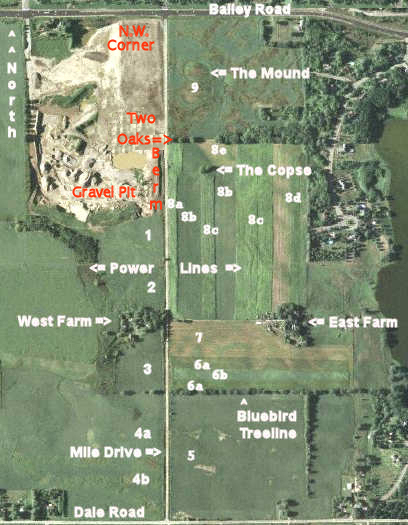
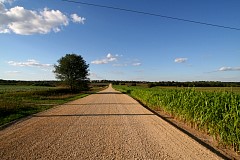 Power line shadows across the road. I am heading north, the gravel pit is just ahead
on the left.
Power line shadows across the road. I am heading north, the gravel pit is just ahead
on the left.
|
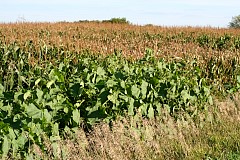 In the foreground growing at the edge of the corn in Field #9 is Velvet Leaf.
In the background the corn is prematurely browning from the heat.
In the foreground growing at the edge of the corn in Field #9 is Velvet Leaf.
In the background the corn is prematurely browning from the heat.
|
|
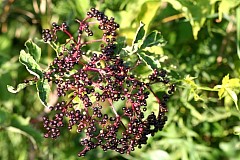
Ripe elderberries on bushes under Twin Oaks.
Return to Consumables
|
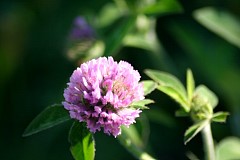
Red clover bloom.
|
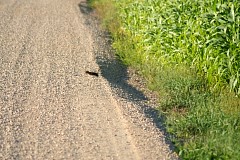
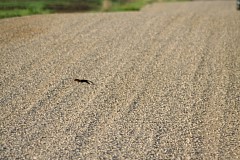
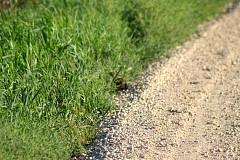 Thirteen-Lined ground squirrel (Spermophilus tridecemlineatus) or here in Minnesota, a Golden Gopher.
Up to 90% of newborns die from predation before hibernation begins. Once they have reached
adulthood gophers probably live for only a few years.
Thirteen-Lined ground squirrel (Spermophilus tridecemlineatus) or here in Minnesota, a Golden Gopher.
Up to 90% of newborns die from predation before hibernation begins. Once they have reached
adulthood gophers probably live for only a few years.
|
|
It took me a while to get a picture like this. Gophers dart as soon as they detect me walking
on the road so this means I have to have the camera at the ready to get a picture.
Gophers are habitual and most active at midday and on warm sunny days. They dig
shallow blind-end emergency burrows as well as complex deeper underground burrows used for nesting and hibernation.
Gophers have excellent senses of vision, touch, and smell. They use alarm calls and other sounds, as well as using special scented secretions, to communicate with other squirrels.
They give alarm calls when they sense the presence of a predator, then all surrounding squirrels escape into their burrows. Main predators include snakes and hawks, such as the red-tailed hawks.
Return to Animals
|
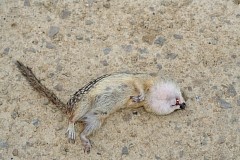
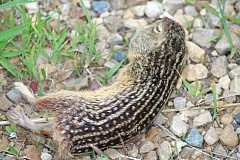
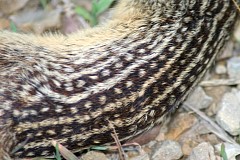
|
|
*** 2007 UPDATE ***
Here in June 2007 is the untimely death of a gopher - a female hit by a car.
Sorry for the roadkill photos - great detail of a creature that's hard to
get close to. Top left - check out the huge "gopher cheeks". A main north-south
road closed in late summer and all fall, so traffic on Mile Drive picked up substantially.
Whereas I might see one or two cars on my two-mile loop before the detour, afterwards
I might see twenty. As a result, the gopher population on Mile Drive suffered greatly.
|
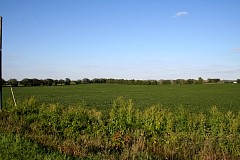
Panoramic of soybeans in Field #5.
|
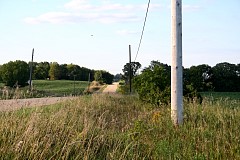
If you enlarge this and look over the road you will see a swooping barn swallow hunting
insects.
|
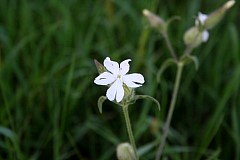
Another attempt at White Cockle / White Campion.
|
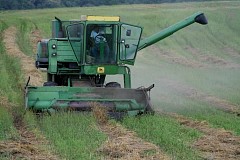
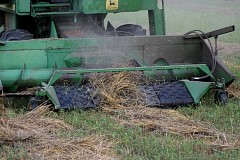
The elderly farmer is threshing his oats.
|
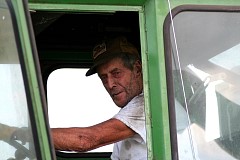
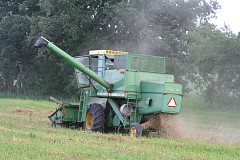
I hope this wasn't too personal a photo to take. Here is a man
doing what he loves. His family has been on this particular section of land for nearly 150 years.
|
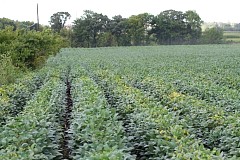
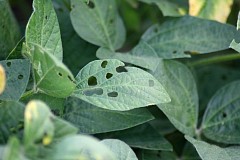
You always see these little insect holes in the leaves of soybeans. I have never seen
the insects that make them.
|
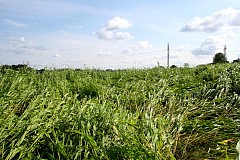
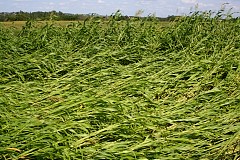
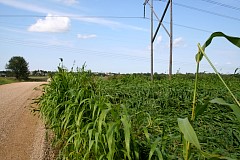 A windstorm came through and knocked down some of the sedan grass. This wasn't straight-line
wind damage, but instead came from minni-tornatic activity. Here are some of the whorls of
crop destruction caused by the downdrafts.
A windstorm came through and knocked down some of the sedan grass. This wasn't straight-line
wind damage, but instead came from minni-tornatic activity. Here are some of the whorls of
crop destruction caused by the downdrafts.
|
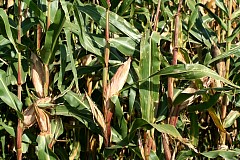
Brown ears of corn.
|
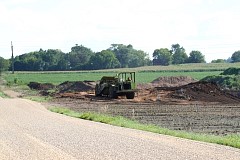
The gravel pit company continues its mysterious terra-forming activities. Make a pile here,
then move it over there, repeat.
|